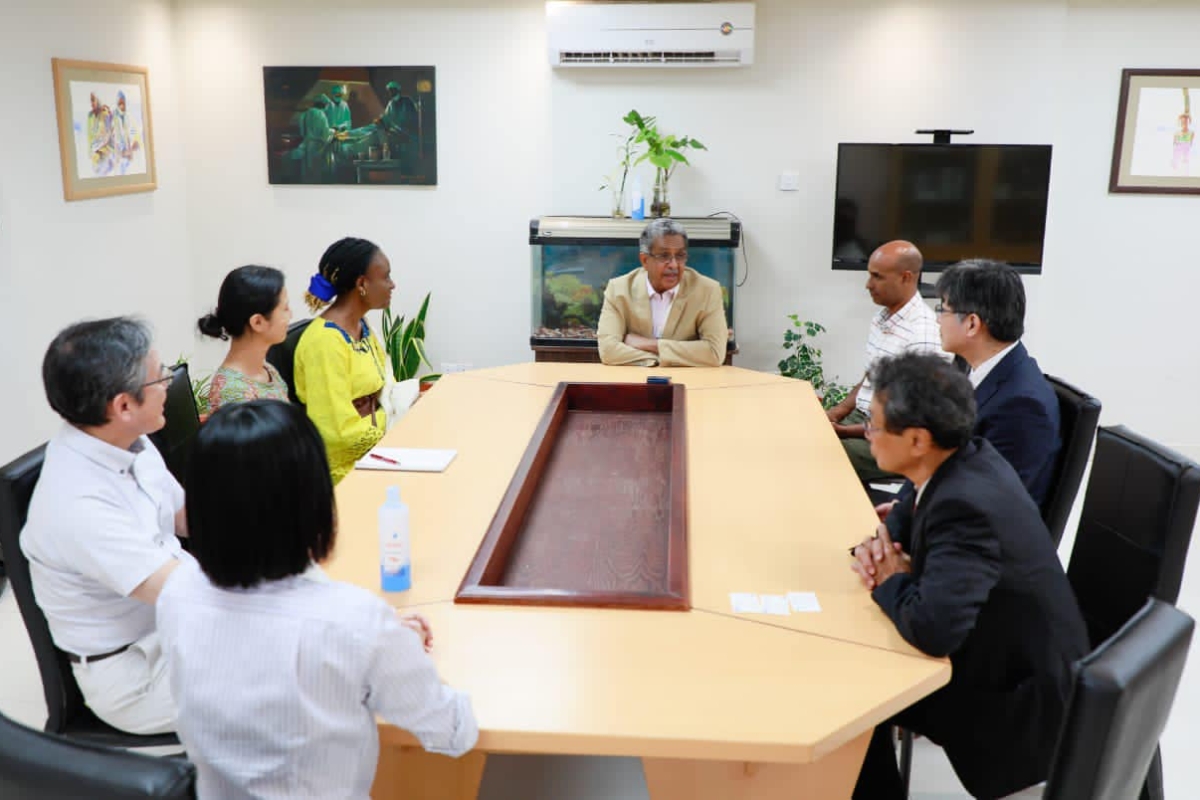Japan at the Mycetoma Research Center
April 2017 witnessed the initiation of the first-ever single-centre, comparative, randomised, double-blind, parallel-group, active-controlled clinical superiority trial of Fosravuconazole versus Itraconazole combined with surgery in subjects with eumycetoma was conducted at the Mycetoma Research Center (MRC), Sudan.

In this study, 104 patients with confirmed eumycetoma due to Madurella mycetomatis were treated in three arms, Fosravuconazole 300 mg weekly, the second arm was Fosravuconazole 200 mg weekly, and the control arm was the standard treatment using itraconazole 400mg daily. The study was closed in 2022, and the data are under review. The study was sponsored by the Drugs for Neglected Disease Initiative, Geneva. It was funded by Global Health Innovative Technology Fund, Japan , and the study drug, Fosravuconzole, was provided by Eisai Co., Ltd, Japan.
A delegate from Eisia Co. Ltd., DNDi, Japan and GHIT Fund in July 2018 visited the MRC to learn more about its objectives and activities. They joined MRC medical and health mission to Wad Onsa Mycetoma Satalite Unit, Eastern Sennar, Sennar State, and they visited the unit, the clinic and mixed with the patients there. Also, during this visit, a documentary film was produced as a collaborative work between the MRC, GHIT Fund, DNDi, and Eisia Co. Ltd. A cartoon film on mycetoma advocacy and awareness was produced by Eisai recently .
During the GHIT visit, Ambassador Shinji Urabayashi and Mr. Yamaguchi, first officer, Embassy of Japan in Sudan visited MRC, and had an explanation of the center as well as burden of mycetoma in Sudan for the first time. Ambassador Urabayashi also showed up to join the International conference in Feb. 2019

The Association of Aids and Relief, Japan started collaborating with the MRC in 2013. Since then, it has supported many of the MRC medical and health missions to the White Nile, EL Gazeria and Sennar States. During these missions, mycetoma suspected patients had ultrasound examinations to confirm the diagnosis, patients were surgically treated, and health education activities were organised. All these activities were offered free of charge. Most of these activities were organised in collaboration with the Mycetoma Patients Friend Association. More recently, Eisia Co. Ltd. started to sponsor AAR to conduct some of these activities in 2019.

On 28th November 2016, a Mycetoma Media Seminar, entitled ‘’Mycetoma: a devastating neglected infectious disease’’, was organised by the DNDi, Japan and MRC and that was conducted at United Nations University, Toyko, Japan. It was addressed by Prof. Haruki Yamada, Tokyo University of Pharmacy and Life Sciences , Professor Emeritus of Kitasato University and Chairman of DNDi, Japan, Prof Ahmed Fahal, Mycetoma Research Centre of the University of Khartoum, Sudan, Dr Katsura Hata, Senior Director of Global Health Research Section, hhc Data Creation Center, Eisai Co., Ltd., Dr Tatsuro Kuzuki, Scientific Liaison of DNDi, Japan, Dr Ikuko Natori, Director of Overseas and Domestic Programs/Operations, Association for Aid and Relief, Japan and Prof. Kiyoshi Kita, Dean, Professor of School of Tropical Medicine and Global Health, Nagasaki University, DNDi Scientific & Advisory Committee. The seminar was well attended, among them, journalists from Mainichi Daily Newspaper which has a circulation of more than 3.5 million and Rinsho-hyoka, the editor of Clinical Evaluation Journal. In addition, to several senior academics, government officials, and several companies representative with good representation from the Association for Aid and Relief, Japan.

An article on on the mycetoma seminar was published in the RIS FAX, one of the most well-known and well-read pharmaceutical industrial news websites targeting pharmaceutical staff and key opinion leaders, such as politicians and government officials. All the press material was posted on the DNDi website and the Digital PR Platform to further spread the news of Mycetoma in Japan and globally.

Professor Fahal visited the hhc Data Creation Center, Eisai Co., Ltd. He gave a presentation on mycetoma; he also visited Japan Agency for Medical Research and Development (AMED) and several research centeres and hospitals, such us Institute of Medical Mycology, Tekyo University and Medical Mycology Research Center (MMRC), Chiba University in Japan in 2016.
RIKEN Center for Integrative Medical Sciences, Yokohama, Japan, had invited Prof. Fahal in 2017 to give a presentation on mycetoma, a devasting medical and health problem and to visit many of its departments and units.

MycEXomics is a Global Health Innovative Technology Fund (GHIT Fund) funded research project which aims by combining academic and industrial expertise and resources to develop point-of-care diagnostics tools for the most common causative agents of Mycetoma. The project consortium has four collaborating partners from RIKEN Center for Integrative Medical Sciences Japan, The Mycetoma Research Centre (MRC) Sudan, The Hospital General de México, Mexico and Erasmus University Medical Center in The Netherlands. The project budget is $285,937, and the first phase of the project [Concept Development] run in the period 2020/04 and 2021/12.
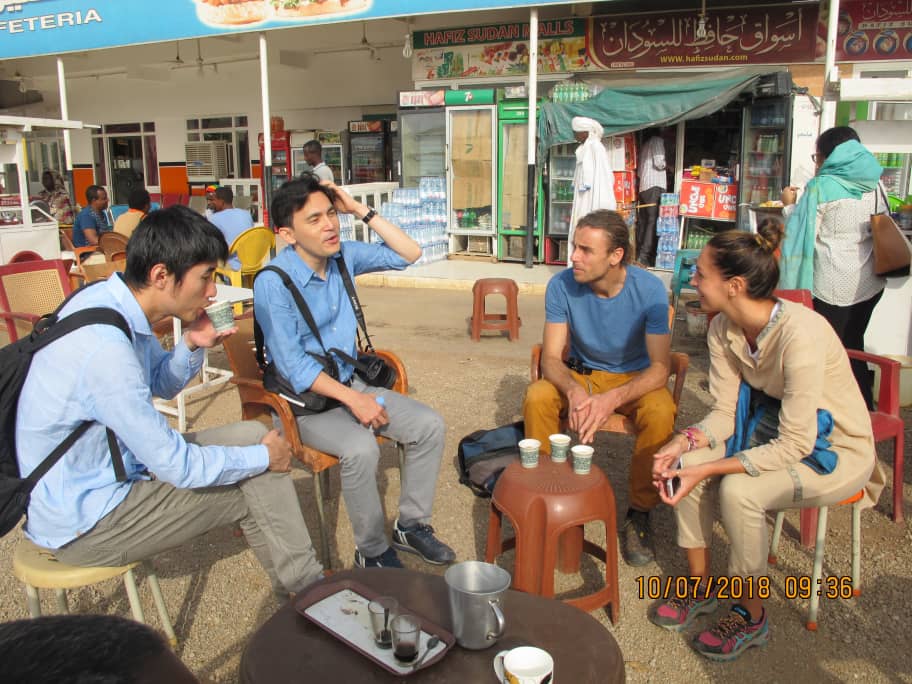
Professor Ahmed Fahal, Director, Mycetoma Research Centre, was invited by GHID Fund to participate at the side session of the Tokyo International Conference on African Development (TICAD) VII, ( ) which was organised in Yokohama, in the period 28th – 30th August 2019. He also met GHIT CEO and discussed with her the collaboration for new diagnostics for mycetoma.
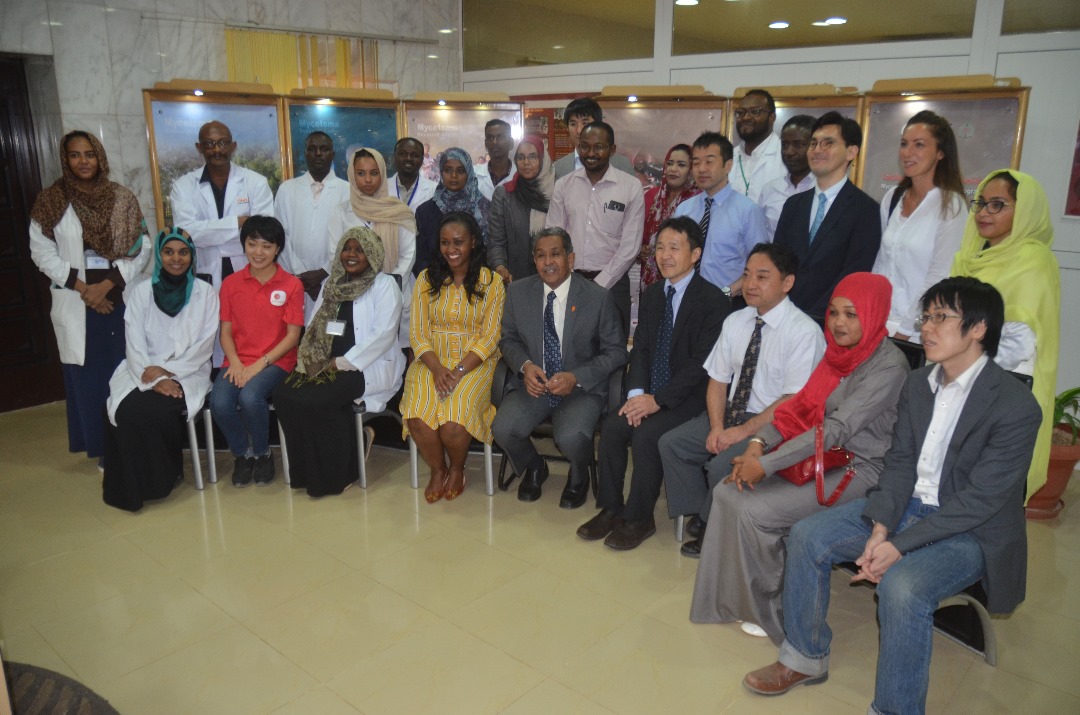
During this meeting, Prof Fahal met Dr Haruo Naito, Representative Corporate Officer and CEO of Eisai Co., Ltd, the leading Japanese pharmaceutical company. They had discussed the close collaboration with the two institutions. Prof Fahal thanked him and Eisai for supporting the first ever double-blind clinical trial on mycetoma treatment conducted at the MRC, Khartoum, Sudan.
The MRC, with generous support from the Japan Embassy in Sudan, through the Ministry of Foreign Affairs, Japan Grass Root project with other local donors, had established the Mycetoma Vocational Training and Entrepreneurship Center ‘SAAI’D’. It was inaugurated on Tuesday, 24th August 2021, by the Ministers of Higher Education and Scientific Research, Foreign Affairs and Industry, the Ambassador of Japan in Khartoum, The Vice-Chancellors of the University of Khartoum, and many other guests.
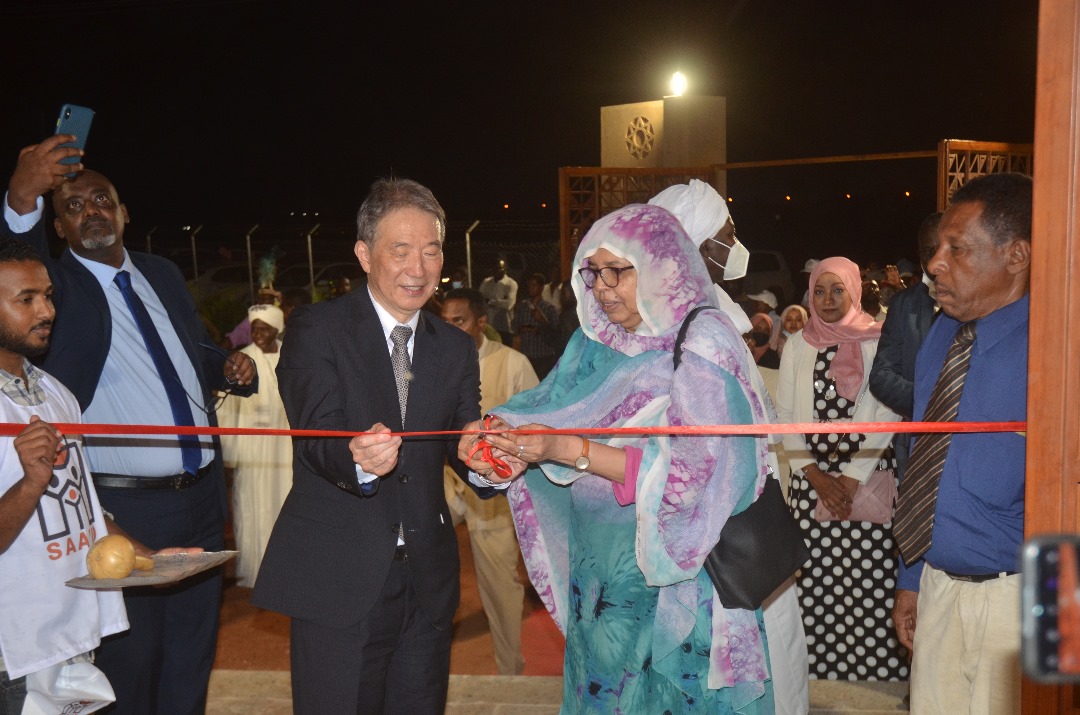
SAAI’S is a hub for vocational training, business development, and entertainment, located at the MRC. It aims to create an enabling environment for mycetoma amputees and disabled persons to learn and develop income-generating skills, perform and upgrade their talents, and be prepared to lead a new life of being productive, self-reliant and confident. SAA’ID has various vocational training programmes such as Sudanese handcraft and leather industry, artisan work, painting, graphics, woodwork, bakery, carpentry etc. Furthermore, it qualifies trainees on business development skills to become professional entrepreneurs ready to establish small developing enterprises.
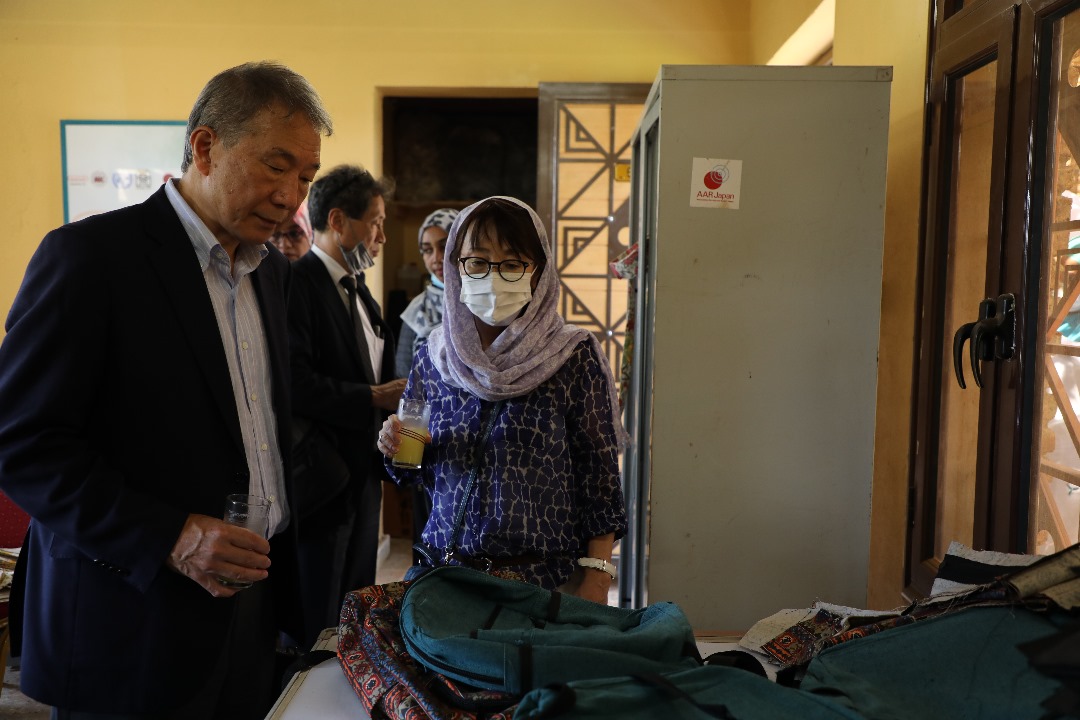
The First International Training Workshop and the Sixth International Conference on Mycetoma were organised by the Mycetoma Research Centre, University of Khartoum, in partnership with the World Health Organisation and the Global Mycetoma Working Group in the period 10-17th February 2019. These events were attended by many researchers from Japan, led by Prof Satoshi Kaneko, Department of Eco-epidemiology, Institute of Tropical Medicine, Nagasaki University. The Japan Ambassador and Embassy staff actively participated in these events.
Professor Satoshi Kaneko, Department of Eco-epidemiology, Institute of Tropical Medicine, Nagasaki University, Japan, visited Sudan several times and attended one of the MRC missions to Wad Onsa Satalite Unit at Eastern Sennar locality, Sennar State. A field survey was conducted with his team resulting in a joint article published at PLoS NTDs.
In 2020 Mr Minoru Yamaguchi, the First Secretary, Japan Embassy, Sudan was elected by the MRC Scientific Board a Mycetoma Ambassador for 2020. Mr had tireless and actively contributed to the MRC activities and events. He supported the idea and the implementation of SAAI’D till it became a reality. He also supported Soba University Hospital and the University of Khartoum in getting new ambulances to help patients and staff to reach the needed patients timely and urgently.
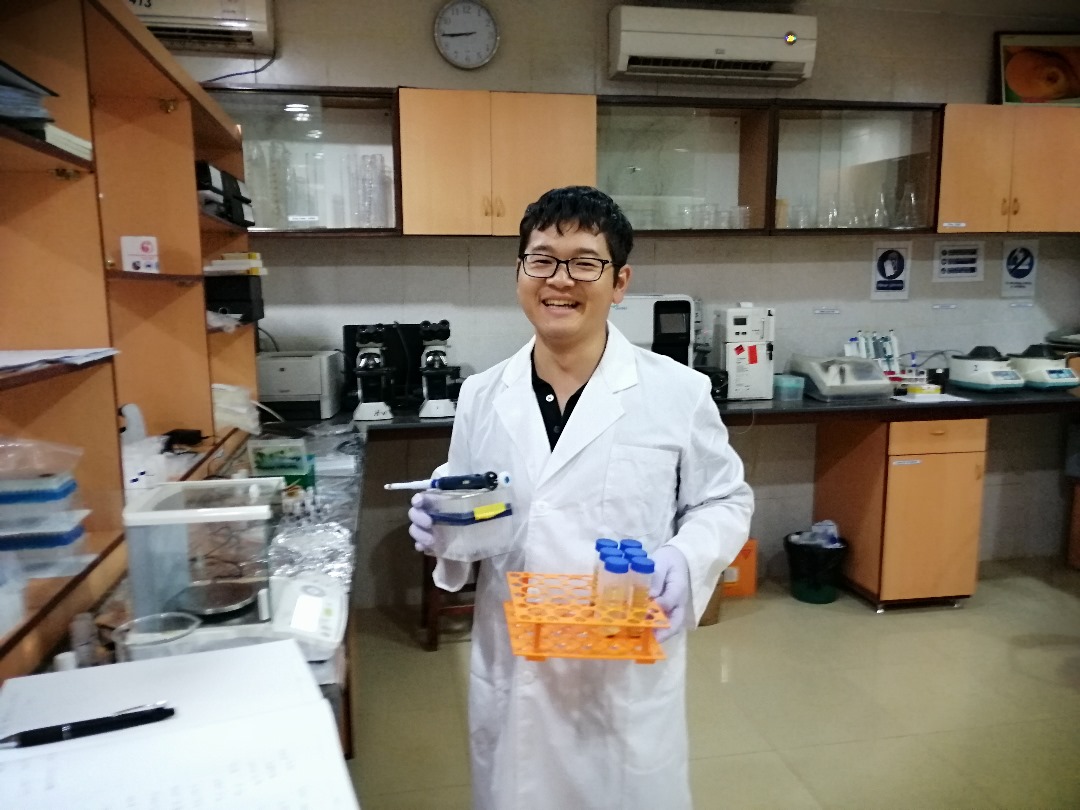
Recently the Mycetoma Research Centre, University of Khartoum had joined the International Collaborative Research Program for Tackling the Neglected Tropical Diseases Challenges in African Countries with a project entitled “Research on the diagnostics of early or latent eumycetoma: Search for new biomarkers, POC diagnostics, and development of a clinical epidemiology platform.” It is funded by The Japan Agency for Medical Research and Development (AMED). The project has four partners, and these are: the Department of Eco-Epidemiology, Institute of Tropical Medicine, Nagasaki University, Chemical Library Center, Institute of Transformative Bio-Molecules, Nagoya University, The Management Unit of Microbiological Resources, Medical Mycology Research Center, Chiba University, Graduate School of Human Development and Environment, Kobe University, Japan and Mycetoma Research Centre, University of Khartoum, Sudan
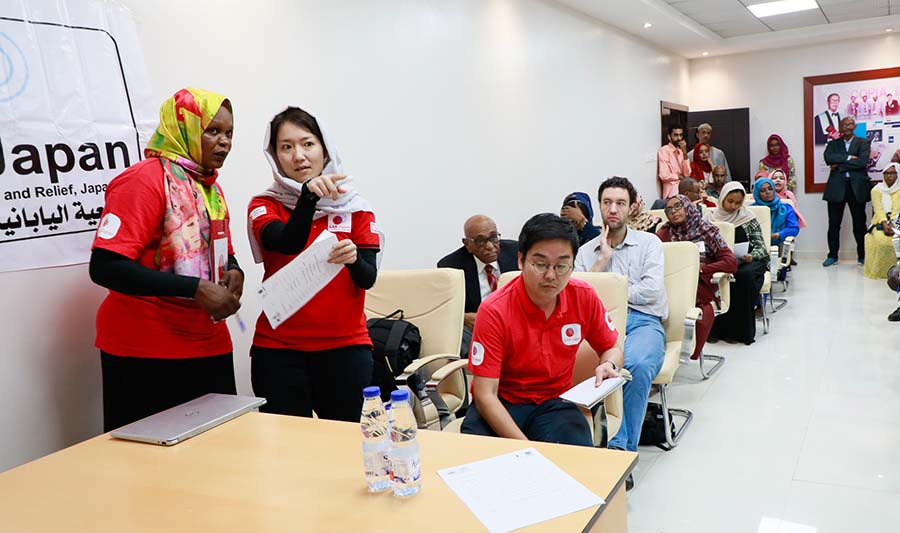
Several officials and delegates from Japan visited the MRC. They had exchanged their ideas and thoughts on the collaborations between their centres and institutions and the MRC to benefit the people of the two countries.
Collaboration of NCGM-MRC
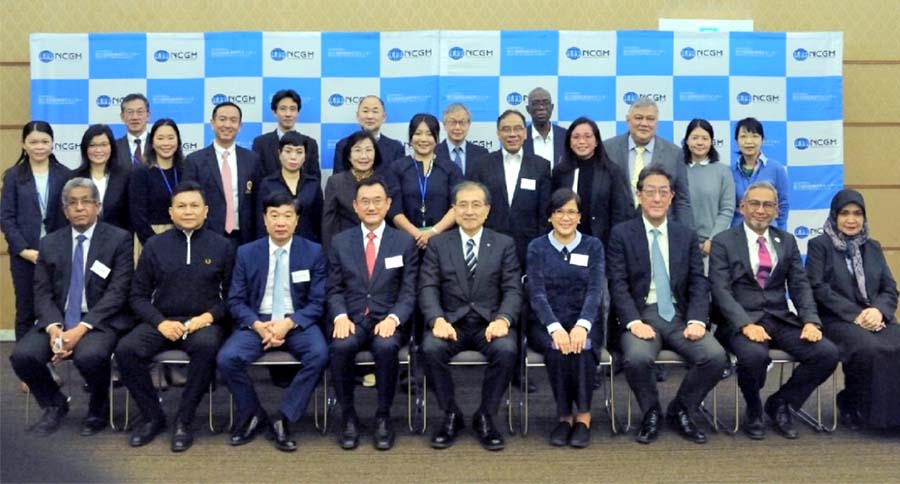
The National Center for Global Health and Medicine is one of the six National specialised Centers under the Ministry of Health, Labour and Welfare of Japan. It includes the Center for Clinical Sciences, which is dedicated to promoting and conducting clinical research locally in Japan and internationally in collaboration with researchers from other countries.
In addition, since 2021, the NCGM has established a clinical trials network called ARISE (Academic Research Organization (ARO) Alliance for Southeast and East Asia. The network focuses on the research and development of medical products through the conduct of clinical trials to improve healthcare access, equity, and pharmaceutical resilience in the Asian region. It promotes investigator-initiated trials and public-academic-private partnerships, particularly in the field of infectious diseases.

In collaboration with several partners in Asia and Africa, the Department of International Trials (DIT), part of the Center for Clinical Sciences, is dedicated to building research capacity of clinical trials professionals in accordance with ethical guidelines, international standards, and national regulatory requirements.
Through the DIT, the NCGM collaborates with the Mycetoma Research Center to build the clinical research capacity of young professionals.
A delegation of two researchers from the NCGM, namely Dr Tatsuo Iiyama, Director of the DIT, and Dr. Muchanga Sifa Marie Joelle, Regional Manager /Africa of the DIT, participated in the joint Clinical Trials Training workshop that was held at the Mycetoma Research Centre in Khartoum, Sudan from 1st to 9th November 2022. This activity was appended to the Mycetoma Campaign 2022

During the workshop, 50 young researchers were trained with the main objective to excite, motivate and train young researchers interested in clinical trials to create a critical mass of scientists to enhance clinical trial culture in Sudan with a view to establish a Pan-African Clinical Trials Training Platform. During the workshop, Dr Tatsuo Iiyama presented ARISE’s efforts to strengthen international research collaboration with the leadership of NCGM.
Following the workshop, on February 7- 8th, 2023, the NCGM invited Professor Ahmed Hassan Fahal in Tokyo to attend the first ARISE Annual Meeting and to be an honourable guest speaker at the NCGM/CCS-Department of International Trials 3rd International Symposium on Clinical Research/Trials and Joint ARISE-AFRICA Symposium on “Addressing the shortage of Physician-scientists and clinical trial professionals”. He explained the importance of developing a robust clinical research infrastructure and human resources and investing in the scientific infrastructure in the least developed countries. He also highlighted the fact that 15% of the world population resides in the African continent, which is home to 25% of the global disease burden. Yet, only 1.1% of global investment in health research and development is spent in Africa. This imbalance increased the ‘brain drain’ of Africa’s talented scientists, who simply moved to more developed countries to exercise their skills in research environments with better funding and more modern equipment. He thus advocated that all medical and health institutions need to develop curricula with embedded research activities at an earlier stage and develop various continuing professional development events to enrich research culture and support young researchers and supporting staff.

